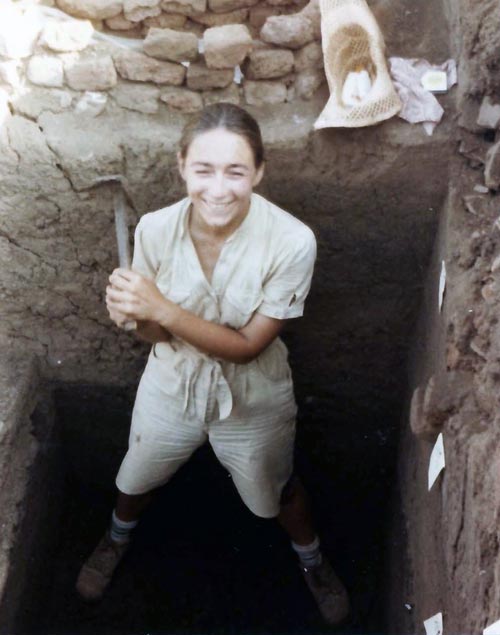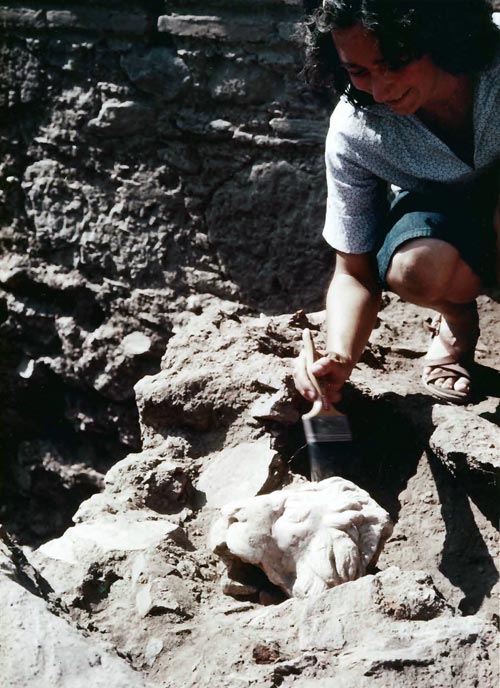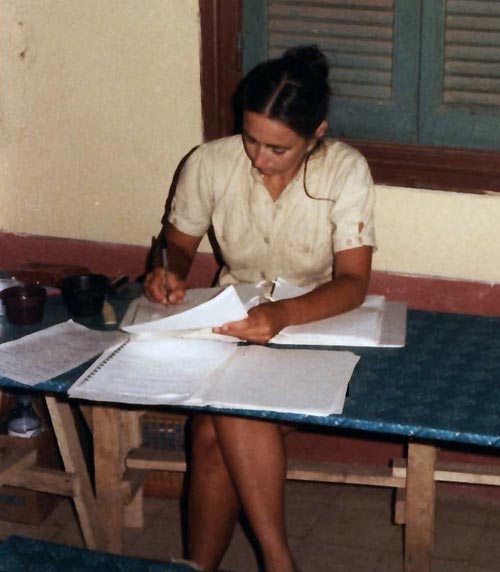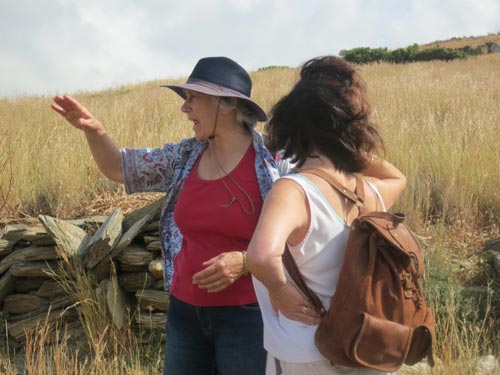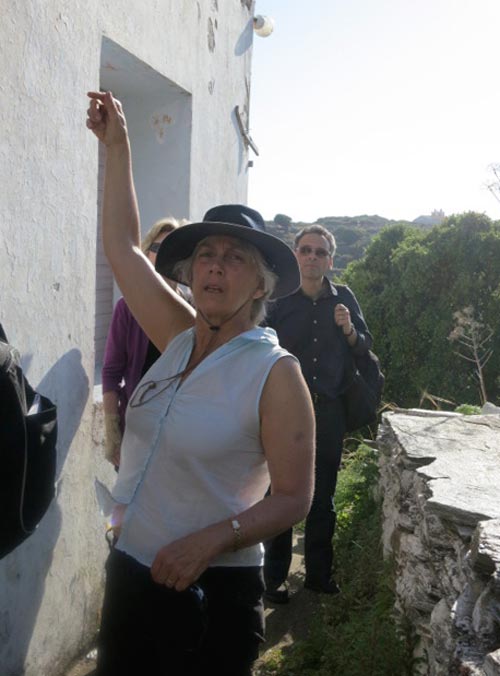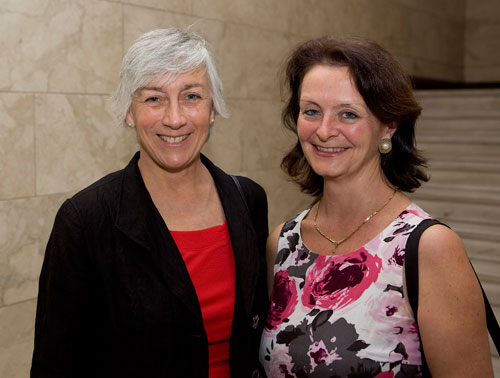Why do you think archaeology is important?
We are who we are now because of what happened before us. Archaeology provides an unmediated window into the past, whose study can rid us of complacency with the fixations and values of the present. Classical archaeology (the archaeology of ancient Greece and the Roman world) is especially interesting because there is an extensive, if patchy, historical record for the civilisations. This situation allows comparison between historical and material record, so that it is possible to see just how limited in scope the historical record is.
When did you know you wanted to be an archaeologist, and what was it that made you want to be one?
I cannot remember a time when I did not want to be an archaeologist. I have always been interested in history. After Robin Hood, and knights, and Vikings, I turned to Homer. Ancient history is especially fascinating, but I like material things, and working with the physical residue of the past brings me closer to the past. I spent a pivotal period – about age 11 – in a remote community in northern Canada, whose population was so sparse that I often wondered,when cutting my way through the underbrushon walks, whether I was the first human ever to set foot on that spot. It was very big, very beautiful, and too full of nature, which made me realize I was more interested in humans and human stories in places where people had taken firm control of the landscape millennia ago.
What study did you do to become an archaeologist?
Nothing strictly “relevant” was available in my high school (not even ancient history), so I took Latin by correspondence – the Canadian equivalent of NSW’s Open High School – and I had fun doing the usual range of academic subjects required for University admission (including French which has been very valuable as a lot of major discoveries have been written about in French; and mathematics which proved useful for laying out trenches). It seemed a good idea to try to get a broad general overview of my choice of civilization first, so I did a couple of BA degrees in Greek, Latin and ancient history (four years at the University of British Columbia and two getting a second BA at Oxford) before focusing especially on archaeology. This was a very wise decision, though it is not the only possible path.
While studying in England, I took part in an archaeological field school at the Roman-British site Wroxeter– just to confirm that excavation was what I really wanted to do. Two weeks was enough to convince me, the discovery of my first Roman nail amidst a mound of decayed mud brick being exhilarating for someone who grew up in a world where the oldest building was 60 years old. I was sure that I was the first person to touch that nail since it was hammered into its beam back in AD 100.
While an undergraduate, just because my paternal grandfather’s family emigrated from the Germanic portion of Europe, I took a couple of years of German. What started out as family nostalgia turned out to be one of the wisest professional decisions I ever made, because German-speakers have been among the most active excavators the world over and if you want to learn about their discoveries, you need to read about them in German.
I decided to broaden my educational experience by doing my post-graduate studies in the United State. England had exhausted all my savings so I was very grateful that some elite American universities provide scholarships to foreign students. The standard programme is quite long and very interesting: 2 years of coursework followed by massive comprehensive exams on all aspects of classical archaeology, followed by or including more focused exams in the area of the intended doctoral research. Dissertation writing was another two years. Classical archaeology is a multi-facetted discipline, and typically in the classroom we learned more about the art-historical and documentary side of things; learning about practical methods and strategies is saved for fieldwork abroad.
While I was a doctoral candidate, I was able to take part in the excavation of Naukratis, in the Nile Delta, for two years. My own university, Harvard, participates in the fieldwork at Sardis, the ancient Lydian capital in western Turkey, and I spent two summers excavating there.As part of my 6 years of American post-grad studies I spent a year in the wonderful lprogramme run by the American School of Classical Studies at Athens, which involves extensive travel to study sites and museums all over Greece (and now they have added a trip to western Turkey), and capped by a chance to excavate at ancient Corinth (where they taught us the rudiments of artefact drawing and recording).
As a student at a participating American institution you can get a scholarship by examination for that. I managed to squeeze in an intensive month-long study of modern Greek in summer school at the University of Thessaloniki before my year in Greece – also essential, if one wishes to work in Greece and, again, to read the publications of excavations done by Greeks.
The short form of all this is: typically to get full-time employment as a classical archaeologist (i.e. of Greek and Roman antiquity), one needs to get a PhD so that one can teach at a university or work in a museum to support one’s excavating habit. So your preparation requires whatever it takes to outfit you as a scholar. And then, it is important to grasp whatever opportunities come one’s way, because the subject is diverse and experience is absolutely the best teacher.
What skills or capabilities do you think are important to being a good archaeologist?
The field of archaeology is so diverse and draws on so many collateral sub-disciplines, that there is something for everyone within it, if you are unafraid of hard work and physical challenges. An easy-going temperament eases the stresses of teamwork and open-mindedness aids interpretative skills. Extensive knowledge of history and a facility with foreign languages are indispensable (at least for the classical archaeologist). Good organisational skills are a real asset.
What advice would you give to someone interested in this career?
The skill set is so extensive and diverse that anyone who wants to be an archaeologist should as early as possible take every opportunity to begin to acquire and develop the various forms of required expertise.
How do archaeologists spend their time?
A general rule of thumb is that for every day in the field it takes seven to process the finds for publication. In fact, many archaeologists never engage in fieldwork, but focus their research undertakings on materials excavated by others and currently housed in museum collections. This has its own special charm for a classical archaeologist as it requires travel to the great archaeological museums of the world, in Athens, Rome, Paris, Munich, Berlin, London, New York, and Boston, to name a few.
It is difficult to allocate precise proportions of time to discrete activities. In my current life, about 70% of my time is spent related to teaching and teaching-associated activities at the university. As my teaching (lecturing, preparing for lectures, marking and supervising) is all about classical archaeology and ancient society, it is more of a pleasure than a distraction.
In Greece now antiquities laws limit fieldwork to six weeks a year and prohibit export of antiquities. While a lot of the planning of fieldwork can and must happen at home, and writing up of material can partly be done at home, all processing of finds must take place during focused stays in Greece.
